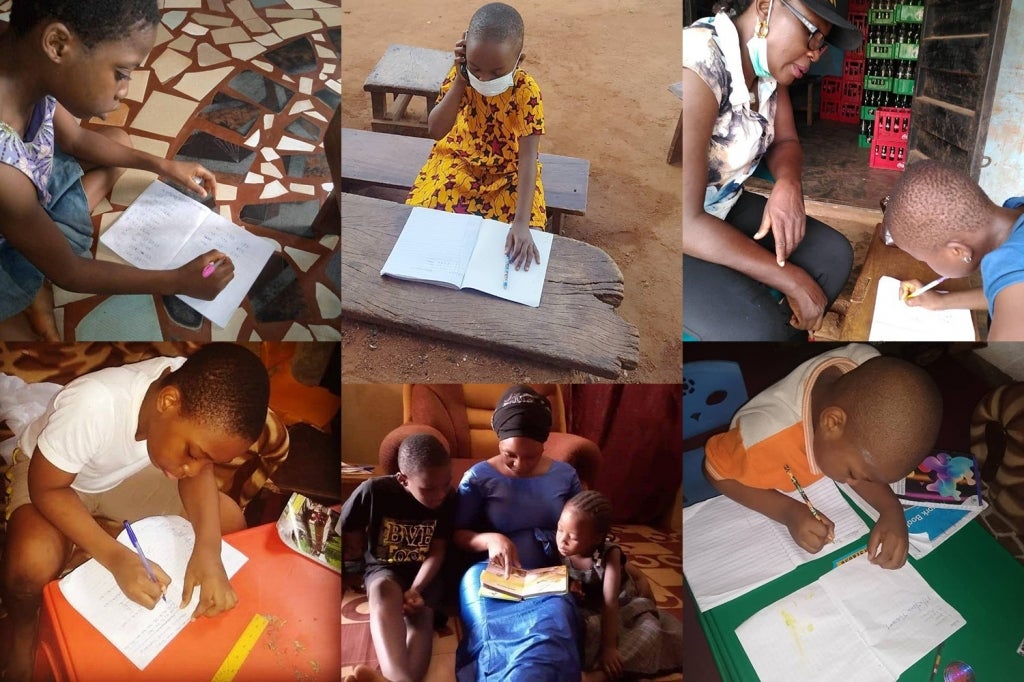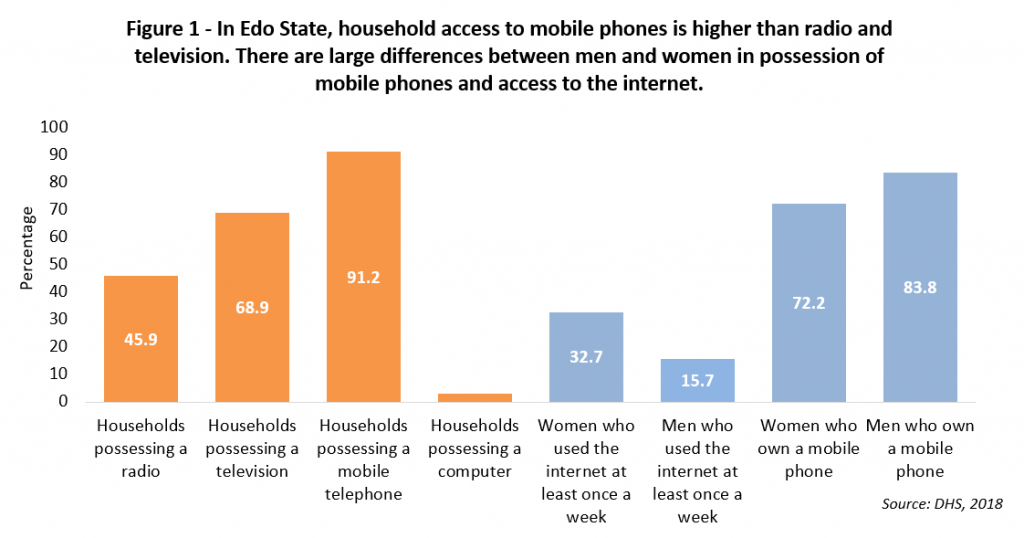 Children in Edo State engage in remote learning
Children in Edo State engage in remote learning
With 253 million learners living in countries affected by school closures due to coronavirus (COVID-19) in 47 sub-Saharan African countries, the region is facing a major crisis affecting learning. Nigeria is on top of the list, with almost 45 million learners affected nationwide.
The crisis might not only affect learning in the short term, having other negative effects such as discontinued school feeding programs, but might also create long term consequences in the accumulation of human capital across the continent.
Finding innovative solutions is an urgent priority, not only to mitigate the learning loss but also to avoid flattening the education curve. While most of the solutions typically discussed are from high- or middle-income countries, there are programs that are helping education systems adapt to the crisis in the developing world. The case of Edo state, in Nigeria, is paradigmatic.
The state has been adapting its flagship EdoBest program, which goal is to address the low levels of human capital formation and the high learning poverty, to a home-based version. Since its inception in 2018, EdoBest was conceived as a whole-system reform approach that leverages modern digital technologies backed by the science of learning to improve teaching and learning processes, by providing continuous teacher support and real-time monitoring of learning inputs, attendance, and learning outcomes.
The new adaptation of the program, which started as a response to COVID-19, is called EdoBest@Home. What does it imply? While the adaptation is comprehensive and dynamic, there are key elements worth mentioning.
First, the state is incorporating digital self-study activity packages that are distributed online (with zero data internet access) and via applications such as WhatsApp. These packets contain hundreds of practice problems for all grades for different thematic areas and answer keys with feedback for parents or caregivers.
But this content is not enough in the context of relatively low access to the internet (Figure 1). Thus, the state is developing a multi-channel approach that includes lessons through audio files for remote learning. These remote lessons are tailored to different grades and designed in an interactive way that includes health and sanitation messages.
The state is also developing interactive quizzes delivered to parents’ mobile phones. These quizzes are aligned with the state curriculum, and they interrelate with other resources such as digital storybooks and lesson guides delivered to parents. To maximize the interaction between learners and teachers, the government is also working on the deployment of mobile tutors and an online help desk to provide real-time feedback.
Simultaneously, the government is taking advantage of the school closures to conduct a comprehensive cleaning of the schools, strengthen its education system, and prepare for schools reopening through a well-thought strategy and preventive measures. In addition, the government aims to keep the learning at home aspects as an integral part of the EdoBest initiative, and not just as a short-term response to the COVID-19 crisis. This will allow the education sector to increase its resilience to future shocks and benefit students with remedial education to address learning gaps.
How did the government reach such a high level of adaptability and resilience?
While multiple factors contribute to this success, there are at least three features that seem relevant and might be applied in other locations.
- Strong government leadership and ownership of the initiative. Through the Edo State Universal Basic Education Board, the government has shown a high commitment, that, in fact, preceded the COVID19 crisis, and was reflected in the design of the EdoBest program, which aims to transform the public education system and improve learning outcomes of a generation using technology. Edo state was in a unique position to quickly pivot towards remote learning because the government had been building its resilience for several years. The learning materials and lessons plans were already digitized and teachers were familiar and comfortable with the use of digital technologies, showing that investments in edtech might pay off in the least expected moments.
- Public-private partnerships have been essential, and the program is benefiting from a strong alliance between the government, the private sector, and the World Bank. The private sector has brought its expertise in education governance, teacher development, instructional design, community projects, and educational technology. The government provides its resources and its ground presence in more than 1,500 public primary and junior secondary schools. The World Bank will be supporting the program with technical assistance and results-based financial resources.
- A high degree of context-specificity. Edo state suffers from limited internet access, and in many cases, parents are not fully equipped to act as primary teachers. Data from the Demographic and Health Survey shows that only 46% of households possess a radio, 69% a television, but 91% have a mobile phone (Figure 1). The percentage of households with access to at least one of them is presumably higher. The multi-channel structure of the program under implementation takes those constraints into consideration.
Going forward, and with World Bank support, the Edo Government intends to scale up EdoBest to cover both primary and secondary education and to integrate the EdoBest@Home program so that students can learn anytime, anywhere. By blending learning at school and learning at home and using digital technologies, Edo State is at the forefront of reimagining education.
The program will certainly not be perfect, and learning losses will be inevitable, but the current situation demands “harm-reduction” education policies that can mitigate the risks and minimize inequalities. Thus, investing in education through innovative approaches that can reach everyone is imperative to avoid one of the most silent but potentially devastating consequences of COVID-19: the increase in the learning gap.
It is perhaps time to remember the famous quote by American philosopher Eric Hoffer: “in a time of drastic change, it is the learners who inherit the future.”









Join the Conversation